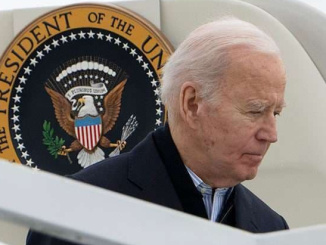
The largest public university in the United States is reserving faculty positions based on race and making six-figure bonuses available exclusively to minorities, programs that are now the subject of a class action lawsuit.
As part of a new initiative to attract “faculty of color,” Texas A&M University set aside $2 million in July to be spent on bonuses for “hires from underrepresented minority groups,” according to a memo from the university’s office of diversity. The max bonus is $100,000, and eligible minority groups are defined by the university to include “African Americans, Hispanic/Latino Americans, Native Americans, Alaskan Natives, and Native Hawaiians.”
Another program, at the university’s Mays Business School, reserves certain slots on the faculty for the same minority groups, emails between Texas A&M professors show.
These explosive revelations form the basis for a class action complaint filed this weekend by the conservative nonprofit America First Legal. The plaintiff, a University of Texas at Austin finance professor named Richard Lowery, argues that the hiring programs violate three different civil rights laws: the Civil Rights Act of 1866, which prohibits race discrimination in contracting; Title VI of the 1964 Civil Rights Act, which prohibits race discrimination at federally funded universities; and the Equal Protection Clause of the 14th Amendment, which bars public universities from using racial preferences in nearly all situations.
“University administrators think they can flout these federal statutes with impunity because no one ever sues them over their discriminatory faculty-hiring practices and the Department of Education looks the other way,” the lawsuit reads. Lowery is asking a Texas district court to put an end to Texas A&M’s programs and appoint a court monitor to make sure that the diversity office “does not aid or abet violations of the nation’s civil-rights laws.”
Such violations are increasingly de rigueur in both academia and corporate America. A faculty hiring plan at George Mason University, announced in April 2021, drew criticism from law professors over its apparent use of racial quotas, which are illegal under federal law. Google, Pfizer, Microsoft, and IBM have capped or outright excluded white and Asian applicants from prestigious fellowships, while Amazon offers “Black, Latinx, and Native American entrepreneurs” a $10,000 stipend to launch their own delivery startups—a program that, like Texas A&M’s initiatives, is now the subject of a lawsuit.
Many of these programs seek to ensure that an institution’s racial balance reflects the demographics of the population. George Mason said its hiring initiative would close “gaps” between the racial composition of its students and the racial composition of its professors. Texas A&M likewise touted its race-based bonus scheme as a way to achieve demographic “parity” with the state of Texas.
Though the public universities can use race as a “plus factor” in admissions, it’s not clear whether they can do so in faculty hiring. Even if they can, the lawsuit argues, Supreme Court precedent would still forbid the sort of outright quotas used by Texas A&M.
“These discriminatory, illegal, and anti-meritocratic practices have been egged on by woke ideologues who populate the so-called diversity, equity, and inclusion offices at public and private universities throughout the United States,” Lowery’s lawsuit says. “The existence of these offices is subverting meritocracy and encouraging wholesale violations of civil-rights laws throughout our nation’s university system.”
Laylan Copelin, the vice chancellor of marketing and communications for Texas A&M, said the the university system would “review the lawsuit” and “take appropriate action as warranted.” With more than 73,000 enrolled students, Texas A&M is the largest university in the country.
* Article from: The Washington Free Beacon


